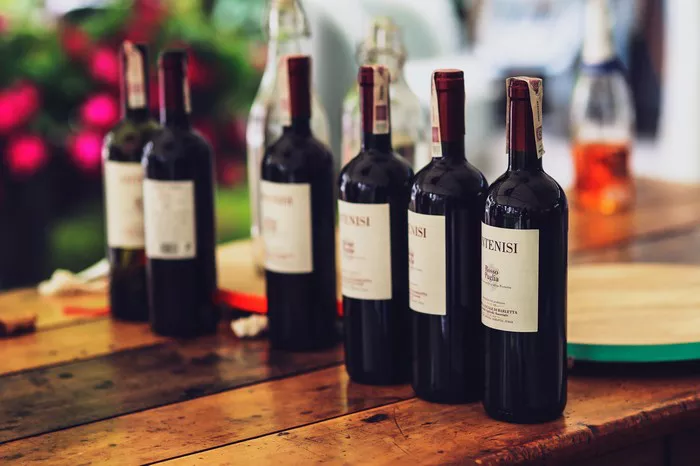Merlot, a luscious red wine known for its softness, rich fruit flavors, and approachability, has garnered significant attention among wine enthusiasts worldwide. However, to truly understand its essence, one must delve into its origins, particularly its ties to France, which holds a significant place in the history and cultivation of this beloved varietal.
The French Roots of Merlot
Originating from the Bordeaux region in France, Merlot has established itself as one of the most prominent red grape varieties globally. The very name “Merlot” is believed to have its roots in the French term “merle,” which translates to “blackbird.” This is potentially due to the grape’s dark-blue color or the bird’s fondness for feasting on these succulent grapes.
Bordeaux and Merlot’s Presence
In the vast vineyards of Bordeaux, Merlot plays a pivotal role in winemaking. Historically, it’s a key component in Bordeaux blends, often blended with Cabernet Sauvignon, Cabernet Franc, Petit Verdot, and Malbec. While Cabernet Sauvignon offers structure and longevity, Merlot brings suppleness, roundness, and fruitiness to the blend, balancing it beautifully.
Merlot’s French Terroir
The essence of Merlot’s identity is intricately intertwined with the diverse terroirs of France. Bordeaux, boasting various sub-regions like Pomerol and Saint-Émilion, showcases Merlot’s adaptability to different soils and microclimates. Pomerol, for instance, is renowned for its Merlot-dominant wines, displaying opulence, depth, and a velvety texture, while Saint-Émilion often features Merlot in a blend, offering elegance and finesse.
Global Spread of Merlot Cultivation
Despite its French origins, Merlot has transcended geographical boundaries, finding a welcoming home in numerous wine regions worldwide. Countries like the United States, Italy, Chile, and Australia have embraced Merlot, cultivating it in diverse climates and terroirs, each imprinting its unique characteristics on the varietal.
Merlot’s Popularity Beyond France
The versatility of Merlot contributes significantly to its global popularity. Its approachable nature and soft tannins make it an excellent choice for both seasoned wine enthusiasts and newcomers alike. In regions like California’s Napa Valley, Merlot thrives, producing wines celebrated for their ripe fruit flavors, smooth texture, and aging potential.
Distinctive Characteristics of French Merlot Wines
When contemplating whether Merlot is a French wine, one must acknowledge the distinctive characteristics that set French Merlot apart. French Merlots often exhibit a fine balance between elegance and power. Wines from Pomerol, such as Château Pétrus, exemplify this with their plush texture, intense flavors of plum and black cherry, and a seamless integration of tannins.
Merlot’s Role in French Winemaking Traditions
In France, winemaking traditions and practices have greatly influenced the cultivation and production of Merlot. The meticulous attention to vineyard management, selective harvesting, and precise blending techniques have honed Merlot’s expression, showcasing the varietal’s potential to yield wines of exceptional quality and finesse.
Merlot’s Evolution in the Global Wine Industry
Over time, the perception and appreciation of Merlot have undergone significant evolution in the global wine industry. Despite its early association with inexpensive and mass-produced wines, particularly in the late 20th century, a renaissance of sorts has occurred, with winemakers redefining and elevating the status of Merlot through premium offerings.
French Merlot in the Modern Era
In recent years, French Merlot has witnessed a resurgence in demand and appreciation, especially among wine enthusiasts seeking well-crafted, terroir-driven expressions. Wineries in Bordeaux continue to innovate, blending tradition with modern techniques, producing Merlot-centric wines that captivate with their complexity, finesse, and ability to age gracefully.
Cultural Significance of French Merlot
Beyond its oenological prominence, French Merlot holds cultural significance embedded in the traditions and lifestyle of the regions where it thrives. In Bordeaux, for instance, Merlot’s cultivation and winemaking are deeply intertwined with the local heritage, fostering a sense of pride and identity within the community.
The Future of French Merlot and Its Global Impact
As the wine world evolves, the future of French Merlot appears promising. Climate change poses both challenges and opportunities for its cultivation, urging winemakers to adapt and innovate while maintaining the integrity of the varietal. With its established reputation and adaptability, French Merlot is poised to continue enchanting palates worldwide for generations to come.
In conclusion, the question “Is Merlot a French wine?” underscores the undeniable influence of France on the varietal’s history, cultivation, and winemaking traditions. While its roots trace back to Bordeaux, Merlot has transcended borders, captivating wine enthusiasts globally with its diverse expressions, showcasing the artistry and craftsmanship of winemakers around the world. French Merlot remains an integral part of the wine world, its allure enduring and its legacy continuing to evolve.


